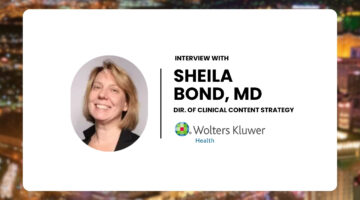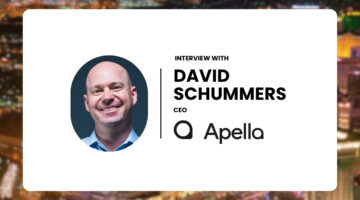Welcome to 2016, the 200th anniversary of the invention of the stethoscope.
If Dr. Eric Topol had had his way, the venerable stethoscope would have been relegated to the dustbin of history by now, as he called for in a memorable TEDMED presentation in 2009.

Transforming Clinical Content with Ambient & Generative AI
Sheila Bond, MD, talked about the latest trends regarding integration of AI in healthcare.
Digital photography may have killed film in what seems like the space of seven years, but let’s face it, medicine moves so much more slowly than the rest of the world when it comes to embracing change. That was the focus of a Washington Post article over the weekend, examining the future of an iconic, ubiquitous but decidedly old-fashioned medical device.
The Post looked at differing opinions even within the field of cardiology — let’s face it, primary care physicians aren’t going to spring for the $8,000 or so that a GE Healthcare Vscan handheld ultrasound costs new. And despite Moore’s Law, that price hasn’t budged much since Topol spoke at TEDMED.
According to The Post:

Transforming the OR: CEO Reveals Game-Changing AI Tech for Better Efficiency
How Apella leverages technology to increase OR efficiency.
The stethoscope is having a crossroads moment. Perhaps more than at any time in its two-century history, this ubiquitous tool of the medical profession is at the center of debate over how medicine should be practiced.
One cardiologist, from Mount Sinai Hospital in New York, declared the stethoscope already “dead.” A pediatrician from Johns Hopkins University School of Medicine in Baltimore disagreed. Said the latter, Dr. W. Reid Thompson:
“We are not at the place, and probably won’t be for a very long time,” where listening to the body’s sounds is replaced by imaging. “It is valuable.”
Still, as the Post reported, there is a common belief in medicine, that physicians aren’t very good at identifying sounds they hear through their stethoscopes. That’s why so many companies have been developing alternatives, including mobile apps that apply algorithms to processing the 12 sounds most common in auscilation.
MedCity News readers may be familiar with the likes of Eko Devices, Rijuven, Pulmonary Apps, InTouch Health and even a digital stethoscope from established player 3M. Clinical research has shown that these types of devices, as well as handheld echocardiograms, are more accurate than traditional auscilation, yet physicians continue to cling to the 200-year-old technology.
Why? Perhaps it’s the coveted “physician-patient relationship,” whatever that has come to mean. As one doctor quoted by The Post put it, “You can’t trust someone who won’t touch you.”
Photo: Bigstock







